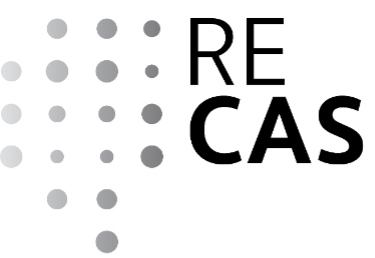On Thursday, April 3rd, 2025 at 12:00 PM (CET), we are hosting the CAS SEE Seminar with Mario Hibert on “Socio-Ecological Boundaries of New Extractivism” in conversation with the RECAS Fellow Safet Kubat.

Mario Hibert
Mario Hibert is a full professor at the University of Sarajevo, specializing in Comparative Literature and Librarianship. He holds a Ph.D. in information and communication sciences and a Master’s in Human Rights and Democracy. Hibert has written extensively on critical librarianship, media literacy, and information ethics. His 2018 book “Digital Degrowth and Postdigital Commons” explores these themes.He has contributed to media and information literacy research, co-authored books, and helped develop policy documents. Hibert is the Editor-in-Chief of “Open Information Science Journal” and was awarded the Charter of Honorary Membership by the Zagreb Library Association in 2020. He has held various leadership roles, including Head of the Department of Comparative Literature, Vice President of the Federal Association of Librarians, and program selector for the “Pravo Ljudski” Human Rights Film Festival.
About the seminar
Rooted in manifestations of ongoing collapse of “the social” (Lovink, 2012) this presentation will tackle actuality of epistemic disruption, information disorder, technological solutionism, and dark enlightenment in order to re-frame media and information literacy approaches to the current AI hype. In that light, “data colonialism” (Couldry and Mejias, 2019) and its structural violence, will be explained using concept of “new extractivism” (Joler 2021) showing that exploitation of biodata is not only the new gold rush but “a new regime of truth, scientific proof, social normativity and rationality” (Pasquinelli and Joler, 2020). According to M. Pasquinelli (2023) the inner code of AI does not imitate biological intelligence but the (social history) of intelligence of labour and social relations, accordingly, apart from being products of big data spectacle, netizens, whose free labour and data footprints enhance smart, digital authoritarianism, ossify existing power relations. On the other side, media and information literacy (MIL), their programs and trainings in domain of digital, civic competencies, poorly refer “to the ongoing individualisation, fragmentation, and emotionalisation of information and the proliferation of strategically circulated misinformation” (Haider & Sundin, 2022). Moreover, media and information literacy is often perceived as personal attribute of self-commodification, not as a social practice. By highlighting of environmental costs and harms od AI, particularly, “artificial intelligence is a registry of power” (Crawford, 2021), an emerging field of eco-media literacy (Lopez, 2021) will be introduced opposing techno-deterministic, instrumental and reductionist outlooks to MIL.
Join Zoom meeting
https://us02web.zoom.us/j/88989643663?pwd=VnZTOWRmdnl0WEZIdTczc1paZWtkdz09
Meeting ID: 889 8964 3663
Passcode: 328897
RECAS Fellowships
RECAS Fellowships
Fellowships are supported by OSF Western Balkans, ERSTE Foundation and Rockefeller Brothers Fund.
